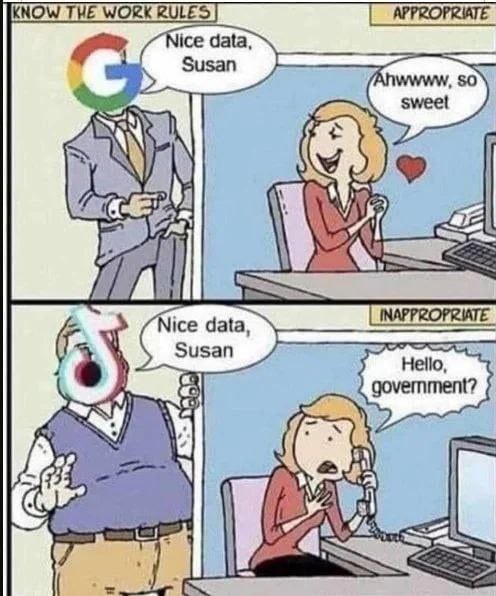- 12 Posts
- 237 Comments

 2·22 days ago
2·22 days agoThat’s why I keep my toothbrush wrapped in paper.

 4·1 month ago
4·1 month agoricey crackers, they have chocolate and rice. everything one needs, besides some water…

 281·2 months ago
281·2 months agothe default country
It’s this meme all over again but this time it’s Israel vs. Russia.

Wherever it comes from, sex must be pretty old. Am I correct in the assumption that all Eucaryotes do have the ability to have sex? (ofc with minor exceptions)
I specifically miss my philosophical and spiritual communities from Reddit. I love learning about mythos and different religions, especially the more esoteric stuff, as well as political philosophy. That content just isn’t here in the same way (or sometimes, at all). It would be amazing to have that here.
If you speak german, that is what the community !philosophie@feddit.org is all about.
No, I think it makes sense.
Living organisms use ions internally (positive charges) because they produce something (like fruits).
Technology uses negative charges because it harvests those fruits, and takes them away (negative).

 2·2 months ago
2·2 months agoYeah, I predict that in the future, you can’t expect that content on the internet is written by humans. If you go to the internet, then it will probably not be to connect to other humans. Maybe you want to know something that a bot can tell you or you have some administrative task to fulfill, like filing a form.
Angel with a Shotgun
Debian for the Transbians (trans lesbians).

 2·2 months ago
2·2 months agoSo, the major issue with settling moon is resource availability: water (!), carbon, fertile soil, and energy.
On the moon you have none of that. Maybe, with a lot of luck, you find water somewhere. Then you need carbon, energy during the long moon nights, and soil that isn’t razor sharp particles.
On Mars, you have all of them: low concentrations of water in the atmosphere, carbon from carbon dioxide in the atmosphere, soil that isn’t razor sharp (thanks to erosion), and the nights are short enough that you can make it through them.
Yeah I’ve been thinking about condensing the water out of the air, too. Problem is: how do you do that? If you use chemical dessication agents, then it’s effectively the same as if you let the soil absorb the water from the atmosphere. Just that the soil is already there and you don’t need to artificially manufacture dessicants. So it’s a bit simpler.
thanks, the link is interesting.
The value proposition would be that it is important to understand the exact radiation pattern/schemes if we ever want to routinize spaceflight. In other words: effective solutions (to the problem of radiation) requires detailed knowledge of what the problem actually is, in other words, what kind of radiation are we talking about.
Do you have any citations for this? I’d like to investigate this.

 4·2 months ago
4·2 months agoFirst of all, yes, attempts have been made, but:
- E-Mail is widespread, but not simple. It’s quite complicated
- Other messengers often try to simplify the protocol.
Things like solar, wind, geothermal, nuclear, hydroelectric, hydrogen, wave power, and fanciful notions like energy beamed from space and nuclear fusion may play an increasing role in our energy mix in the coming decades. But none of them alone can replace fossil fuels. Even when we add them all together, these “green” fuels can’t help us avoid catastrophic climate change […]
Do you have actual arguments for this? Renewable energy can provide a lot of power; The way the article says it makes it sound as if we should neglect these contributions; What makes you think that renewable energy is less important than degrowth?









I’d guess that’s not practical approach.